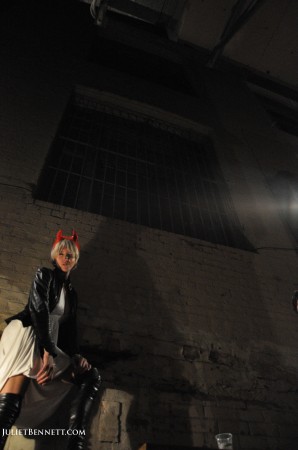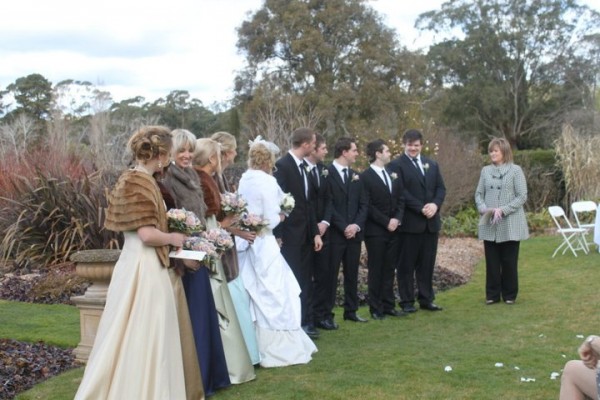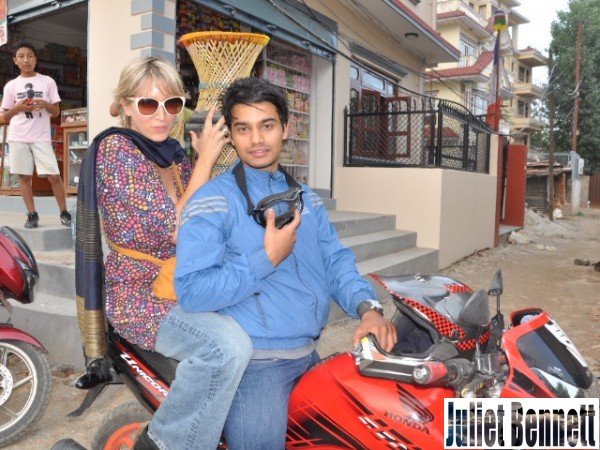 While in the past I’ve aspired to balance, I’ve come to embrace the imbalance, accepting that balance is found in the wholeness of all that exists, and over time – it doesn’t have to exist in every moment I experience. The yin and yang – the mixture of cold and hot, of love and fear, of birth and death – provide a fertile ground for new ideas to be seeded and creative potentials to be discovered.
While in the past I’ve aspired to balance, I’ve come to embrace the imbalance, accepting that balance is found in the wholeness of all that exists, and over time – it doesn’t have to exist in every moment I experience. The yin and yang – the mixture of cold and hot, of love and fear, of birth and death – provide a fertile ground for new ideas to be seeded and creative potentials to be discovered.
I see this dynamic in everything that surrounds me, in the death of stars above, and in the death of tiny ants that decided to share my bed. I don’t think I shared this story when I was away…
In Pokhara I unintentionally killed a few of ants who were on my bed. I spent the next half hour watching the survivors mourn and try to deal with the death of their loved ones:
First the deceased ant’s friend lay it’s head on top of the dead body.
Then it tried to put the carcass on its back and carry it.
When it was too difficult it rolled the body into a ball and tried again.
Then it started to pull and drag it behind.
I don’t know where it thought the nearest ant hospital or grave yard was located.
Eventually it gave up and curled itself into a ball.
I thought it had committed romantic Romeo-and-Juliet-suicide.
But, when I returned from a dinner, I discovered it had pulled itself together and left the bed.
(Lucky there were two beds in my room so I didn’t actually have to share my bed with the ant carcasses lol)
These ant observations left me thinking, not only about the human-likeness of even the littlest insects, but of life and death and where I draw a line between good and bad.
In India and Nepal I had met quite a few people who do not harm an ant or fly in order to prevent a future reincarnation as an ant or fly. Did I feel bad for killing the ant’s friend? No. Not only because it was an accident, and because I don’t believe in karmic reincarnation of individual souls (I do not fear I’ll now be returning as an ant), but because (as I’ve mentioned in other entries) I see death is an intrinsic part of life.
Some forms of life live long lives, others lead short ones, and that is that.
If the ants I killed had a lot to offer our world, then I would be sad. While collectively ants are an important component of Earth’s ecosystem, there are who-knows-how-many billion more ants who will continue this ant’s job. While his friend missed him dearly, the rest of the universe won’t. I guess that’s sad, but it’s the way the universe works, the way “God” works.
Systems on all levels of our reality are microcosms and macrocosms of the systems on other levels. Human society is no different. Killing cows to eat is a product of our present place in the food chain. 60 million years ago we were rodents being eaten by dinosaurs. Life goes on. Systems and species die and new systems and species arise and evolve.
The miracle of human consciousness is the creative choice that sits in our minds – we can actually contemplate, plan and co-create the future of our world. It gives us foresight, hindsight, guilt and conscience. We humans do seem to have the world, sitting in our palms. We humans, in this moment, have the power to create and to destroy.
As agents of “God” we have been given this choice: good or evil, with the definition of these loaded words constantly changing, but what at root appear to somewhat be connected to the harmony and disharmony of the universe as a whole.
The question we face (sorry if I come back to these points too much), is what and how: What do we want the world to look like, and how are we going to get there?
Or… am I giving the human intellect too much credit? Is global warming a sign that the universe, or “God”, has a plan of “his” own; that the laws of nature are more powerful than the laws of man?
Maybe the future of humanity lays in the hands of nature, and not the other way around. Maybe we will be a short-lived species, reaping the karmic consequences of our own neglect and making way for the rise of new species who are possibly a little more ant-like in their sustainable ecosystems and balanced metabolisms.
The future is uncertain. I guess the uncertainty and possibility is part of the fun of it.
Photo:
Photographer – Cade Turner www.cadeturner.com.au
Taken at a fancy-dress charity event I photographed on the weekend. I had to dress as “something or someone that inspires me”. I dressed as an angel AND a devil, with the philosophical justification that the existence of opposing forces keeps me challenged, engaged, and inspired.
It was a fundraiser for The Inspire Foundation – a charity established in direct response to Australia’s then escalating rates of youth suicide. www.inspire.org.au
More photos from the ‘To Be Inspired’ Laneway Ball are on facebook: Click Here



 While in a recent entry I concluded that I simply need to accept the world as it is, today I wonder, does this mean accepting the projectory of the world’s future? If we have the foresight to see that the present path we are on has the potential to destroy humanity-on-earth, do we have a responsibility to pave a new path?
While in a recent entry I concluded that I simply need to accept the world as it is, today I wonder, does this mean accepting the projectory of the world’s future? If we have the foresight to see that the present path we are on has the potential to destroy humanity-on-earth, do we have a responsibility to pave a new path? Walking up in the mountains outside Kathmandu I contemplated the connection between the world’s inequalities today, the actions of one’s ancestors, and the idea of karma and reincarnation that I had been reading about in some books on the Eastern Religions.
Walking up in the mountains outside Kathmandu I contemplated the connection between the world’s inequalities today, the actions of one’s ancestors, and the idea of karma and reincarnation that I had been reading about in some books on the Eastern Religions. On the plane from Sydney to Bangkok, a some three weeks ago now, I met Bipeen – a Nepali who has been living in Australia the last couple of years who was on route to visit his family in Kathmandu.
On the plane from Sydney to Bangkok, a some three weeks ago now, I met Bipeen – a Nepali who has been living in Australia the last couple of years who was on route to visit his family in Kathmandu.